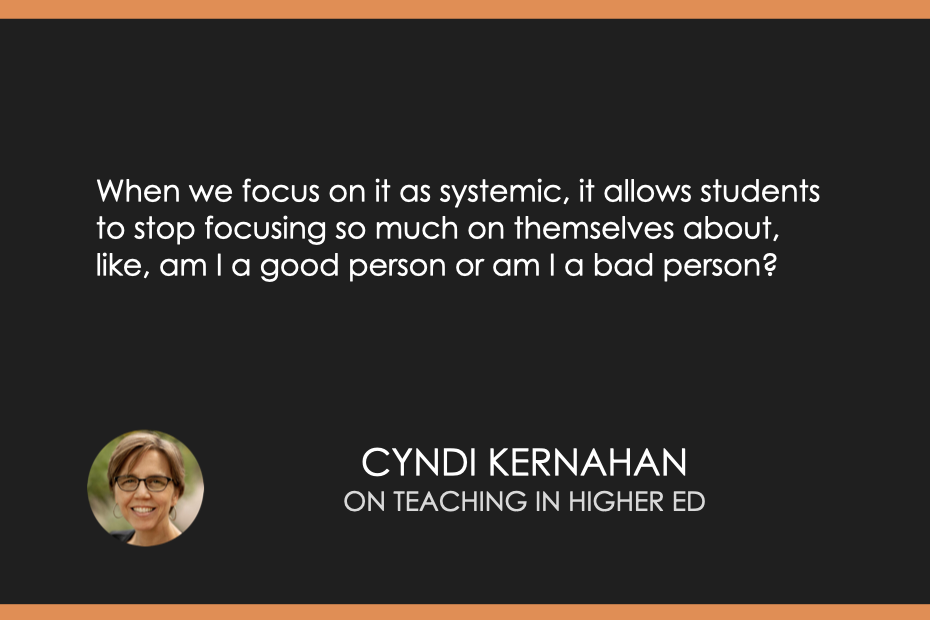
 Teaching in Higher Ed
Teaching in Higher Ed Teaching about Race and Racism in the College Classroom
Jan 9, 2025
Cyndi Kernahan, a professor and director at the University of Wisconsin, River Falls, shares her expertise on race and racism in education. She discusses strategies for fostering discussions around institutionalized racism, aiming for students to focus on systemic issues rather than personal guilt. Kernahan highlights the significance of acknowledging intersectionality and the complexities of teaching race to enhance understanding of social privileges. She also recommends relevant literature and television shows that encourage deep reflection and engagement.
AI Snips
Chapters
Books
Transcript
Episode notes
Childhood Spark
- As a child, Cyndi Kernahan argued with a classmate about God's race, sparking her interest in racial dynamics.
- Her teacher's thoughtful response and observations of school busing further fueled her curiosity.
Colorblindness in College
- Bonnie Stachowiak recalls having posters of MLK Jr. and JFK in her dorm room.
- She believed she didn't "see race," reflecting a common colorblind ideology.
Colorblindness as a Flawed Ideal
- Colorblindness is a dominant, yet flawed, perspective on race, often taught within white families.
- It ignores systemic disparities and reinforces implicit biases.





